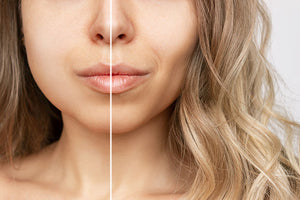Social Media Is Not The Best Source For Reliable Skin Care Information — Here’s Why

Information about how to take care of one’s skin has never been more accessible, and there is nothing wrong with self education. The problem? There is also rampant misinformation. All it takes is a couple seconds on Instagram or TikTok to discover just how many people want to show you their shelfie, or demo their skin care routine. The thing is — everyone’s skin is different and someone online’s favorite cleanser might not be a good fit for your skin — even if their skin looks great and even if they have millions of followers. Here are some of the key reasons why:
- It is important to remember that nowadays, being an influencer is a job. Many influencers get paid to promote certain products — or at the very least, use affiliate links (meaning they earn a portion of the price when you buy a product they recommend). This is not inherently a bad thing...but
- Beware of where you get your information from. Many influencers have no training, education, or skincare treatment experience on which to base their opinions — how can a person with no education about the anatomy of skin and how it functions be an authority?
- Social media relies on trends — but the fact is that the main tenets of keeping healthy skin are basic, and really quite simple. (think: cleanse your skin, treat, moisturize and apply SPF). Though TikTokkers might tout the benefits of applying a potato to a pimple (this is in fact, a real trend on the platform!), a tried-and-true method, like a salicylic spot treatment or an RX from your dermatologist will serve you much better. Remember that just because something is trending, doesn’t mean it’s been vetted — let alone approved — by an actual expert.
- Check your sources! Look at where an influencer gets their information from — have they read and studied how ingredients work, or examined the clinical trials behind them? The fact is that this is important to be aware of for actual skin care experts too. Make sure you vet dermatologists and estheticians. Wondering how to do this? First, look up their website and check for credentials, licences, and degrees. As a prospective customer, feel free to call the practice and ask questions — find out what someone’s background and specialties are. Finally, book a consultation to get a feel for how someone works, ask them questions, and see if you trust them!
- Finally — and perhaps most importantly — remember that skin care is truly personal. What works for one person (or influencer’s) skin might not work for yours! Everyone’s skin is different, and you are much better off seeking personalized skin care advice from a board-certified dermatologist who can actually examine your skin in person and has years of proper training to make a true visible difference.



